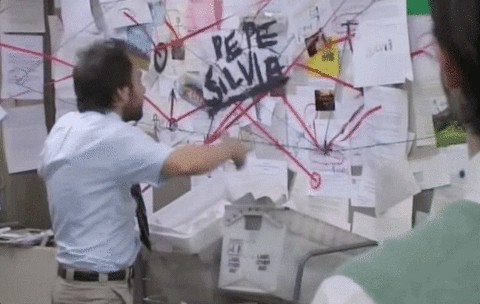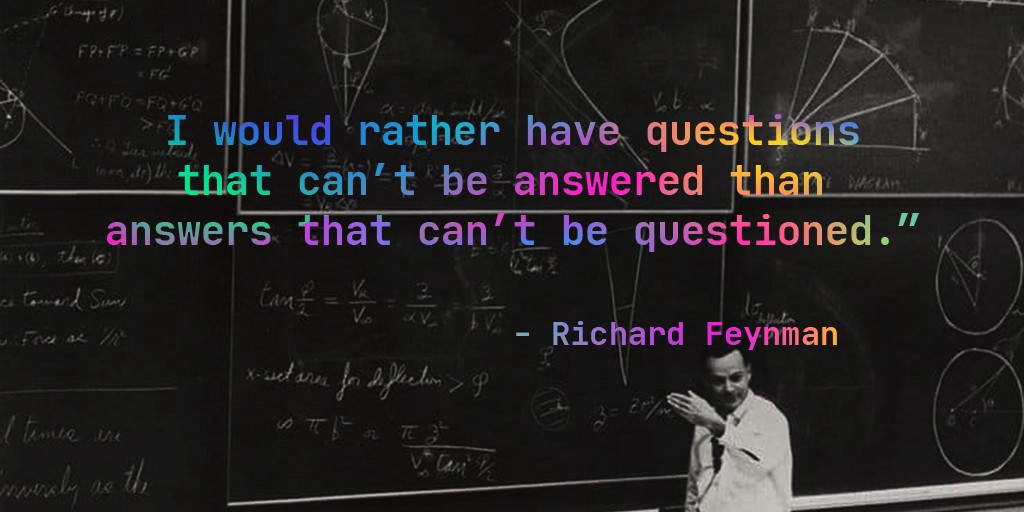itchat 道歉
When cookies were the progeny of “magic cookies”, they were seemingly innocuous packets of e-commerce data that stored a user’s partial transaction state on their computer. It wasn’t disclosed that you were playing a beneficial part in a much larger system, and you didn’t have a choice on accepting your role.
當cookie是“魔術cookie”的后代時,它們似乎是無害的電子商務數據包,它們在計算機上存儲了用戶的部分交易狀態。 沒有透露您在更大的系統中扮演著有益的角色,并且您沒有選擇接受角色的選擇。
Imagine a stranger slipping a packet into your pocket. And then that stranger regularly slips their hand back into your pocket to check on it, because unbeknownst to you that packet has the power to gather and store all sorts of information about you. For over two whole years, some (ingenious) weirdos were doing this virtually unnoticed until the Financial Times reported on the phenomena in 1997. Unnerving? Sure. Yummy? Nope.
想象一個陌生人將一小包滑入你的口袋。 然后那個陌生人經常把手伸回你的口袋里檢查它,因為你不知道那個小包有能力收集和存儲關于你的各種信息。 在過去的兩年中,直到1997年英國《 金融時報》報道這種現象之前,一些(怪異的)怪異者幾乎沒有注意到這一點。 當然。 好吃? 不。
Today those weirdos are a lot more obvious: I bump into them at least 10 times a day. What was supposed to transform the internet into a safer, more privacy-preserving place — making this activity conspicuous and consensual via cookie consent banners — is just exposing what an unpleasant place the internet can be.
今天,這些怪異現象變得更加明顯:我每天至少碰到10次。 旨在將互聯網轉變為更安全,更具隱私保護的場所的目的(通過Cookie同意橫幅使該活動引人注目并達成共識 )只是在揭露互聯網可能令人不快的地方。
Abzu.ai上沒有cookie同意橫幅 (There are no cookie consent banners on Abzu.ai)
There are no cookie consent banners on Abzu.ai because we only use strictly necessary cookies and session cookies. Check out our privacy policy — it’s pretty straightforward.
Abzu.ai上沒有cookie同意橫幅,因為我們僅使用嚴格必要的cookie和會話cookie。 查看我們的隱私政策 -這非常簡單。
Our cookie policy is simple: Start with a question, not with data.
我們的Cookie政策很簡單: 從問題開始,而不是數據。
Data is universally available. What is scarce is the foresight to synthesize information from your data. You’re constantly being mined and monitored in innumerous domains for innumerable ilk of data, because starting with data is unscientifically easy. Asking the question first, building a model to test the hypothesis: now that’s the hard part.
數據是普遍可用的。 缺乏從 數據中 綜合信息的遠見卓識 。 您會在無數域中不斷挖掘和監視大量數據,因為從數據開始非常簡單。 首先提出問題,建立一個模型來檢驗假設:現在這是最困難的部分。

In a vacuum of critical thinking by controllers — and until recently a vacuum of enforced policies — the equation reversed. The direction of computation should have been: “What data do we need to answer our question?” But in an abundance of raw material (your personal data), controllers floated along a lazy river fed by tributaries of data-collection and allowed the flow of data to define what to do next. Data drove operations and decisions. When controllers let data tell them what to do next, data simply said it wanted more data.
在管制員批判性思維的真空中-直到最近,在強制執行政策的真空中 -方程逆轉了。 計算的方向應該是:“我們需要什么數據來回答我們的問題?” 但是,在大量的原材料(您的個人數據)中,控制器沿著一條由數據收集支流支配的懶惰河漂浮著,并允許數據流定義下一步要做什么。 數據推動運營和決策。 當控制器讓數據告訴他們下一步該怎么做時,數據只是說它想要更多的數據。

But controllers forgot to consider that data doesn’t imply correlation. It’s easy to assume or overestimate a link between variables. Continue adding personal information to the equation, and now it’s conclusion-by-conspiracy-wall because dependencies and critical thinking didn’t originate the function. If it sounds like you’re talking crazy or jumping to conclusions, you probably just need more data.
但是控制器忘記考慮到數據并不意味著相關 。 很容易假設或高估變量之間的聯系。 繼續將個人信息添加到等式中,現在這是按陰謀論得出的結論,因為依存關系和批判性思維并非源自此功能。 如果聽起來您是在瘋狂地談論話題或正在得出結論,那么您可能只需要更多數據。
I’ve been that controller: the marketing professional who rejected Occam’s razor and thoughtful planning. Instead I embraced unnecessary complexity and an overabundance of data simply because I could, and because users let me. Friendly interfaces and, frankly, conveniences in consumption journeys obscured the computational misdirection (data first, questions later) and the magnitude of what was going on.
我一直是那個控制者:拒絕Occam的剃須刀和周到的計劃的營銷專家。 相反,我之所以接受不必要的復雜性和數據過多是因為我可以,并且因為用戶允許我。 友好的界面以及坦率的說,在消費旅程中的便利性掩蓋了計算的誤導(首先是數據,隨后是問題)以及正在發生的事情。
Granted, some really interesting interrelated behaviors surfaced because we are mostly predictable beings for all our impulsive and irrational behavior. But without a hypothesis to solve, or any forethought, there is no promise that you’ll generalize correctly. And there are consequences to allowing companies such intimacy and accessibility into so many aspects of our lives — consequences to playing god with big systems.
當然,出現了一些非常有趣的相互關聯的行為,因為我們對于所有沖動和非理性行為都是可以預見的。 但是,如果沒有要解決的假設或任何預先考慮,就無法保證會正確地進行概括。 允許公司如此親密和可訪問性進入我們生活的許多方面會產生后果,這是在大型系統中扮演上帝的后果 。
以人為本的技術意味著放棄上帝模式 (Human-centric technology means giving up God mode)
We’ve been creating new tools but for the same old urges. We’re still trying to play god, to take and hoard and monitor more than we should before we have divined a direction. Is anyone surprised that our inventions reflect our biases, avarice, and prejudices?
我們一直在創建新工具,但出于相同的舊追求。 我們仍然在嘗試神,要占卜和監視比我們確定方向之前更多的事情。 有人會對我們的發明反映出我們的偏見 , 貪婪和偏見感到驚訝嗎?

When we talk about making humane tech or human-centered AI, what we really mean is giving up God mode. We mean making decisions thoughtfully and responsibly.
當我們談論制造以人為本的技術或以人為本的AI時,我們真正的意思是放棄上帝模式。 我們的意思是周到負責的決策 。
Metering our activities doesn’t mean we throttle possibilities or become narrow-minded! It means that we become more of our best selves: communal rather than individual, explorers over conquerors, hunters instead of gatherers, creative in lieu of one-track-minded.
對我們的活動進行計量并不意味著我們會扼制可能性或變得狹narrow! 這意味著我們更多地成為了自己 :集體而非個人,征服者的探索者,獵人而不是收集者,富有創造力,而不是一心一意。

At Abzu, we’re for lean data and human-centric technology. We’re for self-organization. We’re not for control by external agents, which is why we’ll never ask for anything we don’t need.
在Abzu,我們追求精益數據和以人為本的技術。 我們是為了自我組織。 我們不希望由外部代理控制,這就是為什么我們永遠不會索要不需要的東西的原因。
We start with questions, and we answer through data, not by ineffectively digging through limitless data sets.
我們從問題開始,然后通過數據回答,而不是無效地挖掘無限的數據集。
We listen to our users to get a sense of their needs. We conduct personalized interviews. We hand-hold, we white-glove, and we hug because we embrace our humanity. And we firmly believe we aren’t the crazy ones.
我們傾聽用戶的聲音,以了解他們的需求。 我們進行個性化采訪。 我們握住,白色手套,擁抱,因為我們擁抱人類。 我們堅信我們不是瘋子。
翻譯自: https://medium.com/abzuai/apologies-for-our-humanity-c957ff721a59
itchat 道歉
本文來自互聯網用戶投稿,該文觀點僅代表作者本人,不代表本站立場。本站僅提供信息存儲空間服務,不擁有所有權,不承擔相關法律責任。 如若轉載,請注明出處:http://www.pswp.cn/news/388896.shtml 繁體地址,請注明出處:http://hk.pswp.cn/news/388896.shtml 英文地址,請注明出處:http://en.pswp.cn/news/388896.shtml
如若內容造成侵權/違法違規/事實不符,請聯系多彩編程網進行投訴反饋email:809451989@qq.com,一經查實,立即刪除!)



![[luoguP4142]洞穴遇險](http://pic.xiahunao.cn/[luoguP4142]洞穴遇險)














